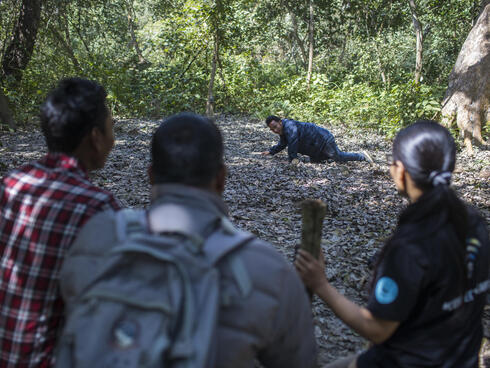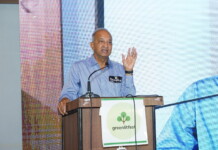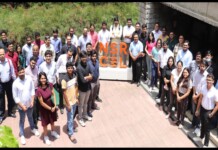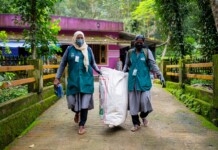Our planet is home to an estimated 8.7 million species, with 1.2 million already described, and new discoveries emerging continually. However, the balance of these ecosystems is under threat due to human activities and a lack of awareness, leading to the extinction of numerous species. This loss has profound implications, not just for nature, but for humanity itself. Citizen scientists can help.
“Local communities are the custodians of natural resources. They have the most knowledge about their surroundings and in training them we help build the capacity of communities to understand and address conservation issues; recognize changes in local ecosystems such as forest cover including invasion of alien plant species; monitor the movement of wildlife; and ultimately develop local stewardship for overall conservation,” says Shant Raj Jnawali, Biodiversity Coordinator, Hariyo Ban Program, WWF Nepal.
The concept of ‘Citizen Science’ is increasingly relevant in this context. Citizen Scientists are individuals from local communities who contribute to scientific activities such as data collection and analysis on forests, wildlife, water, and climate.
“Citizen scientists can be students, wildlife enthusiasts, or anyone with a diary, smartphone or recording device, and interested in collecting data. They can record and upload their findings on several online portals such as inaturalist.org, bioatlasindia.org, indiabiodiversity.org, and many more. The ideal method of documentation follows the Primary Biodiversity Record model: What species, when, where and who recorded it?
It is common for diligent citizen scientists to record rare species outside their habitats, discover new species, and find invasive species in an ecosystem. Additionally, this data can also be used in People’s Biodiversity Registers (PBR) and for environmental impact assessment (EIA) considerations, and will be of great help to conservation and climate science” ” says Dr. Vijay Barve, Researcher in Biodiversity Informatics and Citizen Science
The unique advantage of citizen science lies in its accessibility and reach. Citizen scientists, often young people and community members, can access areas and communities that professional scientists might not, bringing invaluable local and national conservation insights. They support professional scientists by providing systematic data, sharing experiences, and spreading conservation awareness within their communities.
Community Engagement in India
In India, the integration of citizen science initiatives into educational and community spheres has a profound impact on environmental consciousness. These initiatives are increasingly being woven into the fabric of educational systems, from schools to universities, where students are actively participating in hands-on scientific activities. This approach not only enriches their academic experience but also instills a deeper understanding of complex environmental issues such as biodiversity loss, climate change, and pollution.
Beyond formal education, numerous organizations conduct workshops and training programs, effectively broadening the reach of environmental education. These programs not only impart knowledge but also emphasize the importance of biodiversity and the need for its conservation, thus fostering a sense of environmental stewardship among participants.
The role of citizen science in community engagement and empowerment in India is particularly noteworthy. Projects often focus on involving local communities, especially in rural and ecologically sensitive areas. This inclusive approach not only values and utilizes the traditional ecological knowledge of these communities but also integrates it with modern scientific research. Such a synergy between traditional wisdom and contemporary science promotes a holistic approach to environmental management and conservation.
This participatory model of citizen science is instrumental in bridging gaps between communities and conservation efforts, ensuring that conservation strategies are both effective and culturally relevant.
Public Awareness is a Byproduct
Citizen science initiatives in India play a crucial role in raising public awareness and influencing behavioural change towards the environment. Through various awareness campaigns and the use of media and online platforms, these projects reach a wide audience, sparking discussions and spreading knowledge about environmental issues. This heightened awareness often translates into a collective call for action, influencing public attitudes and encouraging sustainable practices.
Moreover, the data collected by citizen scientists is invaluable for informing local and national environmental policies. Success stories from projects like ‘SeasonWatch‘ and ‘Marine Life of Mumbai’ exemplify the positive impact of such initiatives, highlighting how citizen science can not only contribute to scientific research but also educate the public on critical environmental phenomena.
The growing role of citizen scientists represents a shift in conservation paradigms, acknowledging the interconnectedness of all life and the power of local knowledge. As we face unprecedented environmental challenges, the synergy between professional science and community engagement might just be the key to preserving the delicate balance of our planet’s biodiversity.










